Russia in War and Revolution
RUSSIA IN WAR AND
REVOLUTI

N
General William V. Judsons
Accounts from Petrograd,
19171918
Edited by
Neil V. Salzman
T HE K ENT S TATE U NIVERSITY P RESS
Kent, Ohio, and London, England
1998 by The Kent State University Press, Kent, Ohio 44242
All rights reserved
Library of Congress Catalog Card Number 97-35946
ISBN 0-87338-597-7
Manufactured in the United States of America
04 03 02 01 00 99 98 5 4 3 2 1
Library of Congress Cataloging-in-Publication Data
Judson, William V. (William Voorhees), 18651923.
Russia in war and revolution : General William V. Judsons accounts from Petrograd, 19171918 / edited by Neil V. Salzman.
p. cm.
ISBN 0-87338-597-7 (cloth : alk. paper)
1. Soviet UnionHistoryRevolution, 19171921Personal narratives, American. 2. United StatesForeign relationsSoviet Union. 3. Soviet UnionForeign relationsUnited States. 4. United StatesForeign relations19131921. 5. Soviet Union Foreign relations19171945. 6. Judson, William V. (William Voorhees), 18651923. I. Salzman, Neil V. II. Title.
DK 265.7. J 83 1998
947.084'1dc21
97-35946
CIP
British Library Cataloging-in-Publication data are available.
To
Jean Salzman
Robin Salzman
Aram, Noah, and Gabriel Salzman
and Barbara and Murray Flam
Contents
A number of individuals and institutions have been especially helpful in bringing the publication of this book to fruition. Alice Judson Hayes, daughter of Clay Judson and granddaughter of William V. Judson, kindly shared her memories and family memorabilia concerning the life and activities of her grandfather. Clay Judson first took the initiative of making the papers of his father available to the scholarly community more than forty-five years ago, and Alice Hayes has added additional documents and photographs in recent years.
Fairleigh Dickinson University provided released time from teaching to do research and writing and, in addition, awarded grants to defray the many expenses of travel and research. Patricia M. Verost and Jennifer Harris in FDUs Office of Grants and Sponsored Projects were particularly helpful.
John Hubbell, Director of Kent State University Press; Julia Morton, Editor-in-Chief; and Linda Cuckovich and Joanna Hildebrand, Managing Editors, have been a dedicated source of help, along with Will Moore, copy editor, and the rest of the Kent State University Presss skilled editorial and production staff.
Michael Stroble, a history honors graduate of Fairleigh Dickinson University, gave many hours of his patient research to develop the Dramatis Personae that is included in the introductory material. We both hope this departure from the conventions of scholarly publications will contribute to this books usefulness.
As in all of my teaching and research, I am fortunate to have the encouragement and support of my good friend Robert Ubell, whose ideas and insights have always been a boon.
Walter Cummins, Gary Jaworski, and Peter Woolley, colleagues of mine at Fairleigh Dickinson University, were kind enough to take time from their busy teaching and research responsibilities to read and comment on portions of the manuscript. Their suggestions have made a better book. Dennis Foster and Elizabeth Janelle Russell helped with index proofreading.
Diana Haskell, Lloyd Lewis Curator of Midwest Manuscripts at the Newberry Library in Chicago, along with her excellent staff, have made each of my visits there both pleasurable and productive. At the National Archives in Washington, D.C., Kenneth Heger, at the Civil Reference Branch, and Mitchell Yockelson, of the Military Reference Branch, Textual Reference Division, helped with the challenges of locating Judsons decoded telegrams received by the War College Staff in Washington. The harried and overworked librarians and research staff at the National Archives deserve the thanks and credit far beyond any I can acknowledge here.
Frances Farrell, Lindsay Zano, Jessica Cain, Evangeline Cochrane, and Zhang Zhiguang, whose dedicated childcare provided countless hours that could not otherwise have been devoted to the work at hand, have my deepest thanks and friendship.
Finally, I thank Gabriel for his patience and resilience in sharing his dad with this projectand in sharing the computer with his dadand my wife Robin for her love, understanding, and support.
All documents included here are in chronological order and are in the William V. Judson Papers (WJM) at the Newberry Library in Chicago, Illinois, unless otherwise indicated. Most of the documents in through 5 were formulated by Judson for transmittal to his superiors at the War College Division (WCD), or Staff (Warcolstaff in Judsons communications), of the War Department, which operated directly under the supervision of the chief of staff. On 26 August 1918, well after Judsons tenure in Petrograd had ended, the War College Staff was replaced by the Military Intelligence Division.
Most of the official communications included here were sent by telegram and in the special code of the American Military Mission to Russia. In most cases these communications are entitled Paraphrase of Telegram Sent. Almost all of the documents included here, primarily taken from Judsons personal papers, are the original drafts of communications as Judson composed them. The use of the term paraphrase in the heading of nearly all official telegrams sent during the period covered in this book reflects the senders understanding of the variations in syntax that may be produced by encoding and decoding messages. The sender expected that his precise meaning would be communicated, even though his exact words may not. A comparison of Judsons messages sent from Petrograd with those received at the War College Staff in Washington bears out that those expectations were fulfilled. Responsibility for confusion and for differences of opinion about developments in revolutionary Russia cannot be placed at the doorstep of these mechanics of telegraphic communication. One may wish to speculate about the course of events in American-Russian relations had telephone links connected Petrograd with Washington; however, as interesting and even revelatory as such speculations might be, this is neither the time nor the place for pursuing them.
Where possible, particularly in most of Judsons Warcolstaff telegrams, a footnote cites its location at the National Archives. These are the documents that were reconstructed in Washington for dissemination among Judsons superiors. A cross-referencing of the documents in the National Archives with those of the Newberry Library indicates that, with only two or three exceptions, Judsons set of originals of his official communications during his tenure at Petrograd is complete. Since the documents are arranged in chronological order and since the book contains a detailed index of personalities, subjects, places, and events, there is no independent listing of all of the separate documents. Please consult the index to locate a particular document if its date is unknown.


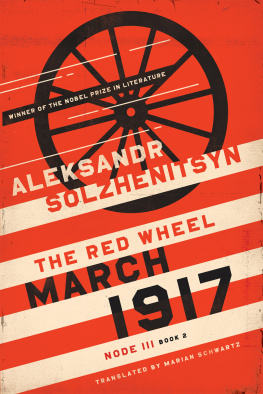
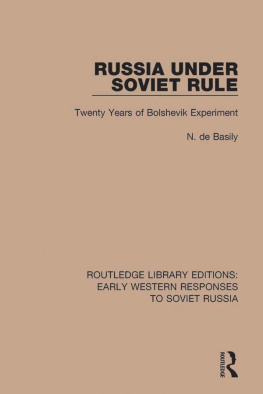
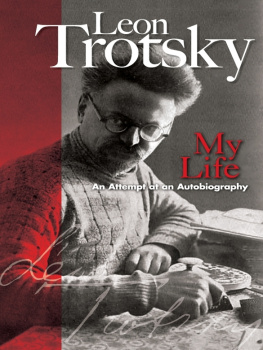

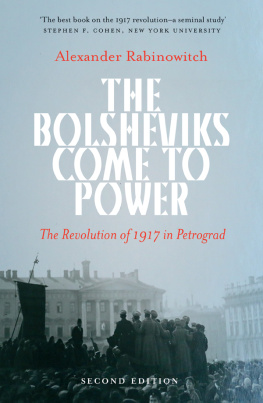

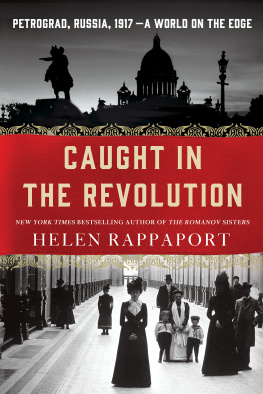



 N
N